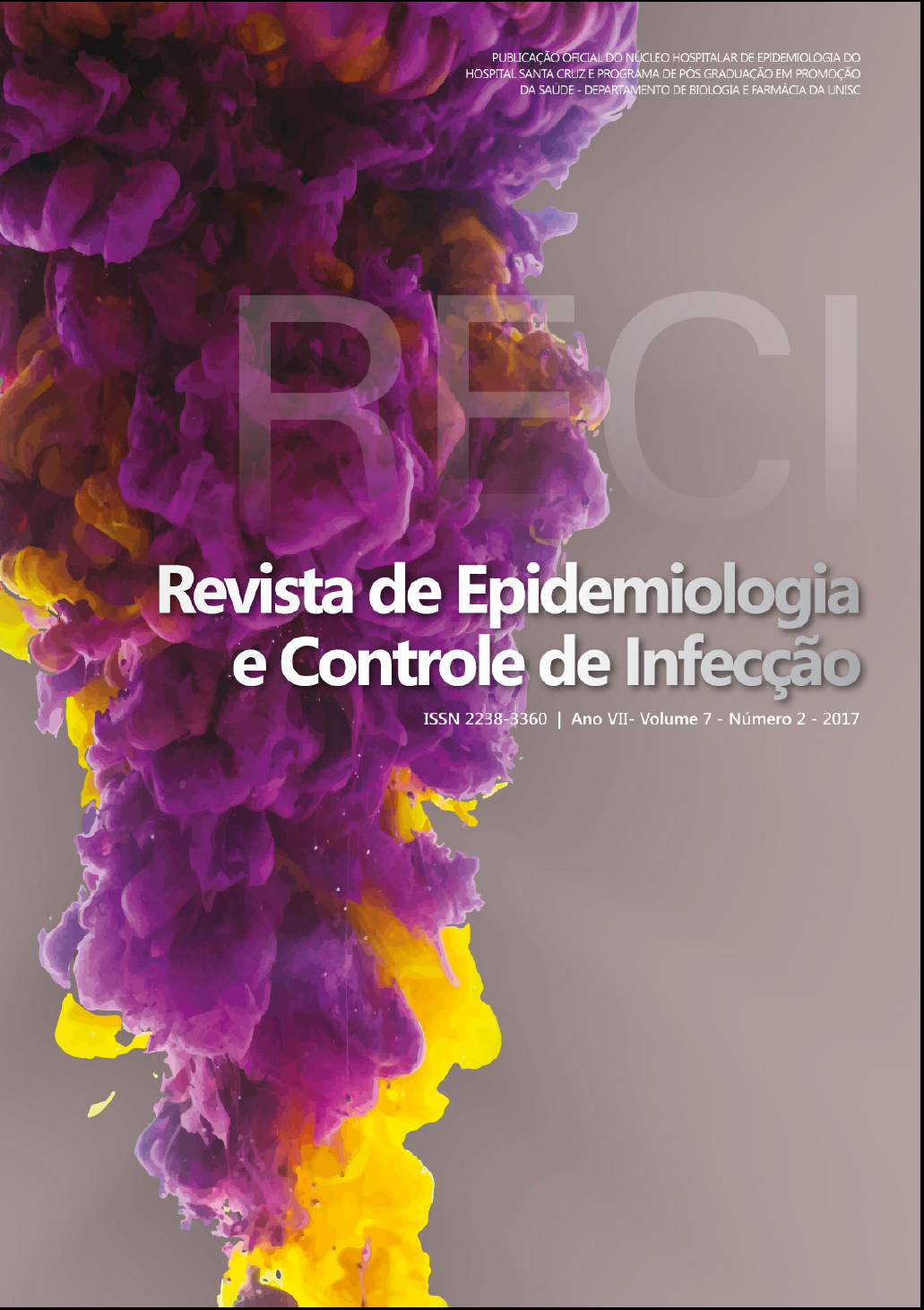Effect of bactericidal activity of three disinfectants on methicillin-resistant Staphylococcus aureus (MRSA)
DOI:
https://doi.org/10.17058/reci.v7i2.7460Abstract
Background and Objectives: Methicillin-resistant Staphylococcus aureus (MRSA) can cause hospital-acquired infections (HA-MRSA), community- acquired ones (CA-MRSA), and infections transmitted by pets and animals raised for food production (livestock-acquired or LA-MRSA). The conduct to control the transmission of these diseases requires a careful action against the causative agents on surfaces in the environment and the choice of disinfectants and antiseptics is crucial. The objective of the present study was to evaluate the effect of the bactericidal activity of sodium hypochlorite (SH), iodophor (I) and a quaternary ammonium compound (QAC), cetyl-trimethyl-ammonium chloride, commonly used in hospital and animal production settings, on 21 MRSA isolates and a control bacterium, and test the hypothesis of cross resistance of antibiotics and disinfectants. Methods: The bactericidal activity of four successive dilutions of the disinfectants was evaluated through the suspension test, using an initial inoculum population density of 107 CFU/mL, after contact times of 5, 15 and 30 minutes. Results: Five minutes of contact of SH 25 ppm, I 12.5 ppm and QAC 125 ppm sufficed to inactivate the reference bacterium S. aureus ATCC 6538 and all MRSA. Conclusions: Once the factors that influence the efficiency of disinfectants are controlled, sodium hypochlorite, iodophor and the quaternary ammonium compound are suitable for controlling MRSA in the sources of infection. No resistance relationship was observed in the methicillin-resistant isolates with these substances.Downloads
Downloads
Published
How to Cite
Issue
Section
License
The author must state that the paper is original (has not been published previously), not infringing any copyright or other ownership right involving third parties. Once the paper is submitted, the Journal reserves the right to make normative changes, such as spelling and grammar, in order to maintain the language standard, but respecting the author’s style. The published papers become ownership of RECI, considering that all the opinions expressed by the authors are their responsibility. Because we are an open access journal, we allow free use of articles in educational and scientific applications provided the source is cited under the Creative Commons CC-BY license.


